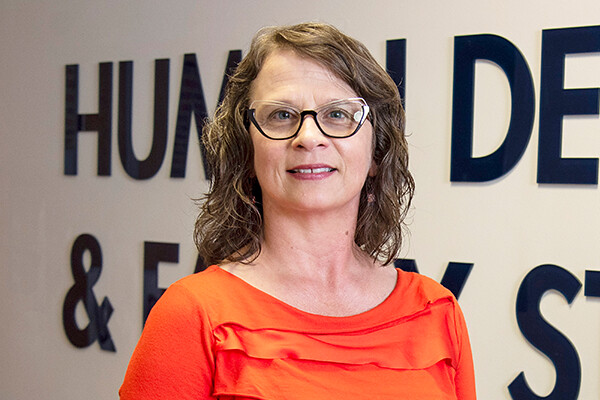Family life expert offers advice on keeping Halloween safe amid COVID-19
Article body
The COVID-19 pandemic has caused communities to modify or cancel large social gatherings. The upcoming Halloween holiday is no exception. While some communities are offering drive-thru trick-or-treating events in lieu of the traditional door-to-door candy gathering, others have canceled the holiday altogether. Angela Wiley, a professor and former Extension specialist in family life, explains how families can maintain some sense of normalcy when a global pandemic prevents your child from collecting candy from the neighborhood. Wiley is also the head of the Department of Human Development and Family Science in the College of Human Sciences at Auburn.
Door-to-door trick-or-treating might seem like a bad idea to some amid the pandemic. Is there a safe way to do it?
Parents should make this decision carefully and consider ways to make trick-or-treating as safe as possible in a time of COVID-19. The Centers for Disease Control and Prevention provides some excellent guidelines. Here is some advice:
- Children over 2, chaperones and treat-givers should all wear masks. This year, leave costume masks at home as these do not take the place of a cloth mask and can hinder breathing if worn over a cloth mask. Make the cloth mask part of the costume, if possible.
- Accept treats outdoors only. Ideally, treats should be individually bagged for children to take.
- Maintain six-feet distance from anyone who does not live in your home.
- Parents should supervise children to use hand sanitizer frequently while trick-or-treating and not touch their mask. Once home, everyone should wash hands thoroughly before eating candy.
- Consider organizing a group of families who agree to safety guidelines and take children to those homes only.
If not, how do you explain the cancelation to a child who looks forward to dressing up and getting lots of candy?
If parents decide to not trick-or-treat in the traditional way, they should explain it to children in age-appropriate terms. Most children are aware of the virus and the related changes they have experienced at school and can understand that many activities must be adapted during this time. It may help to have some other alternative adventures planned, like setting up a full-costume scavenger hunt with treats hidden around the house and yard. Think of it like an Easter egg hunt for Halloween goodies.
Isn’t it important to maintain some sense of normalcy in times of change? How can families do that this year?
Traditions and rituals are important for family cohesion, as well as the wellbeing of family members. Resilience is measured in part by how we respond to change and challenge, by how we return to some level of normalcy during or in the aftermath of stress. While the pandemic has provided many challenges, we must find a way to mark important milestones and create positive memories that will sustain us in years to come.
Are there any safe alternatives families can do to mark the holiday?
Trick-or-treating is an important part of Halloween, but the celebration can also include carving jack-o-lanterns, an activity that can be done outside with immediate family or with friends, if sufficient space is available for distancing. Consider organizing a neighborhood or extended family outdoor costume parade, wearing masks and staying at least 6-feet apart. If that is not possible, a video conferencing platform like Zoom can be used to host a virtual Halloween party for friends or family with the focus on creative costumes.
Auburn University is a nationally ranked land grant institution recognized for its commitment to world-class scholarship, interdisciplinary research with an elite, top-tier Carnegie R1 classification, life-changing outreach with Carnegie’s Community Engagement designation and an undergraduate education experience second to none. Auburn is home to more than 30,000 students, and its faculty and research partners collaborate to develop and deliver meaningful scholarship, science and technology-based advancements that meet pressing regional, national and global needs. Auburn’s commitment to active student engagement, professional success and public/private partnership drives a growing reputation for outreach and extension that delivers broad economic, health and societal impact.





